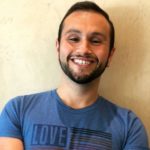Since 1988, the global community has come together to mark World AIDS Day and renew our collective commitment to combating HIV and AIDS — while also supporting and uplifting those living with either worldwide.
2021’s theme is Ending the HIV Epidemic: Equitable Access, Everyone’s Voice. With it, we not only highlight our critical work to eradicate HIV but also stare down a root cause behind its spread: the vast array of inequities that unfairly and disproportionately plague the communities most impacted by the virus.
Those inequities come in many forms: limited access to adequate and affordable healthcare, deeply rooted systemic racism, rampant homophobia and transphobia, inequitable wealth, and people experiencing poverty, just to name a few. And, far too often, those voices who are on the receiving end of them are ignored or silenced. That’s why this year’s theme is so crucial to our long-term work.
UNAIDS, the Joint United Nations Programme on HIV/AIDS, has a global vision of ending the epidemic as a public health threat by 2030. Imagine a future with zero new HIV infections, zero discrimination against those living with HIV and zero AIDS-related deaths. A “status-neutral” future that unites us by treating everyone with dignity and respect from the beginning without the labels. Instead of dividing people into “HIV-positive” and “HIV-negative” subgroups, treatment or preventative care sees the person as a human being and not as their “status.”
That is what true, holistic success looks like for this work. But, if we want a shot at that, it will require not only fighting the epidemic but also addressing the inequitable roadblocks above and more in the way.
Ending HIV starts with us. It’s crucial we do our part and focus on what we can control on our own, namely own sexual health:
- Practicing safer sex as often as possible.
- Exploring prevention methods like PrEP (pre-exposure prophylaxis) and PeP (post-exposure prophylaxis) to see if they are right for you.
- Getting tested regularly for HIV (and COVID-19!)
- Finding a medical professional you trust and building an open relationship. The more brutally honest, the better.
These, however, are just the start. If the last two years of living with COVID-19 have taught us anything, it’s how connected we are, for better or worse, and how much we are in fights like these together. HIV and COVID-19 both impact the most vulnerable among us, and that’s no coincidence. There, too, rampant inequities in our institutions and our healthcare spaces help further the human cost.
These two viruses are unlike in so many ways, of course, but the lessons we can learn from them are crucial: our work towards a more equal public health space has the power not only to keep people safe and healthy but also it can transform the world at its core and, hopefully, rewrite how it sees people. That, too, is a reminder of how important World AIDS Day remains.
Now, we must continue to look ahead. If we want to beat HIV, we need more than individual changes. We need additional support from our leaders on the global stage, throughout the medical profession, and in the educational sphere. It will take all of us, working together toward this goal.
Progress is possible. Look at what we have already achieved: HIV rates are trending down, prevention methods are working — and much more available — and treatments are becoming more widely accessible, all while activists and advocates continue to tirelessly combat systems of oppression that remain in the way of progress.
Ending HIV once and for all is possible. But it will take everyone’s voice in a ringing chorus of support to do it. This World AIDS Day, remember to do your part to keep yourself safe and get into the fight for a better world. It’s never too late to make a difference and, together, we can.
For more information on World AIDS Day and the HIV epidemic, head to sexualbeing.org



